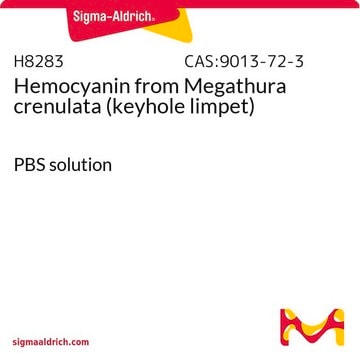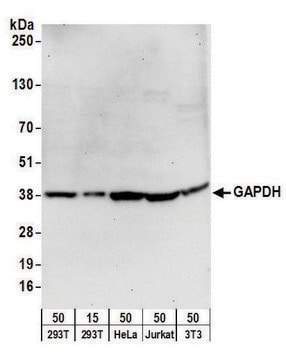H0892
Anti-Hemocyanin (KLH) antibody produced in rabbit
affinity isolated antibody, buffered aqueous solution
About This Item
Recommended Products
biological source
rabbit
Quality Level
conjugate
unconjugated
antibody form
affinity isolated antibody
antibody product type
primary antibodies
clone
polyclonal
form
buffered aqueous solution
species reactivity
keyhole limpet
packaging
antibody small pack of 25 μL
technique(s)
indirect ELISA: 1:20,000
shipped in
ambient
storage temp.
−20°C
target post-translational modification
unmodified
General description
Application
- immunocytochemistry{58
- }immunohistochemistry
- immunofluorescent staining
- immunoblotting
Immunocytochemistry (1 paper)
Biochem/physiol Actions
Physical form
Disclaimer
Not finding the right product?
Try our Product Selector Tool.
Storage Class Code
12 - Non Combustible Liquids
WGK
nwg
Flash Point(F)
Not applicable
Flash Point(C)
Not applicable
Certificates of Analysis (COA)
Search for Certificates of Analysis (COA) by entering the products Lot/Batch Number. Lot and Batch Numbers can be found on a product’s label following the words ‘Lot’ or ‘Batch’.
Already Own This Product?
Find documentation for the products that you have recently purchased in the Document Library.
Our team of scientists has experience in all areas of research including Life Science, Material Science, Chemical Synthesis, Chromatography, Analytical and many others.
Contact Technical Service







